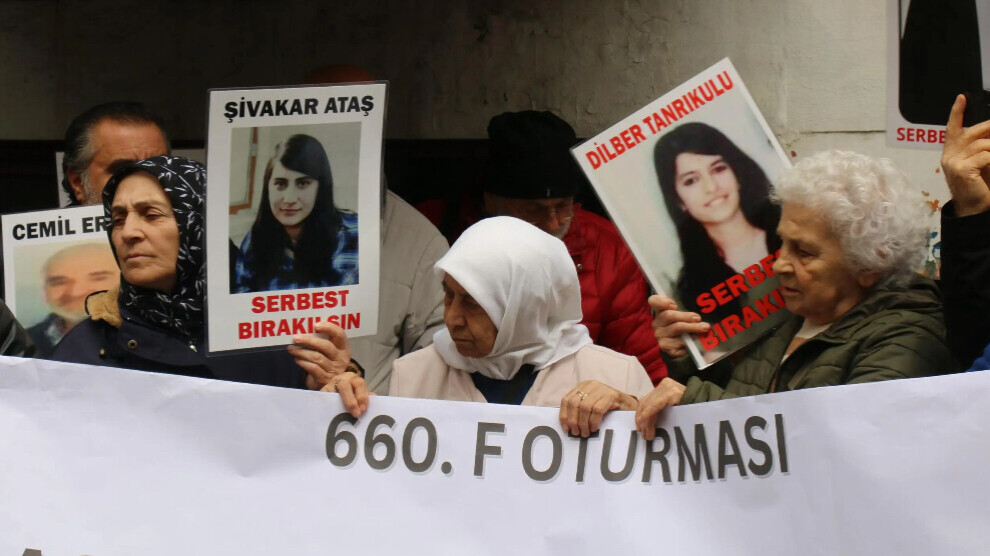Ill prisoners and the state’s ideological stubbornness
The state's approach to political prisoners is shaped as part of a kind of "hostage politics." This situation goes beyond classical criminal law.
The state's approach to political prisoners is shaped as part of a kind of "hostage politics." This situation goes beyond classical criminal law.

In Turkey, prisons function as spaces where the state’s ideological reflexes, security-oriented mentality, and ways of dealing with political crises are intensely concentrated. Especially when it comes to political prisoners, these places become “hostage zones,” where law, health, and human rights norms are often suspended and replaced by the logic of absolute state control. In recent years, the obstruction of medical access for sick prisoners and the threats to their lives have been among the clearest manifestations of this policy.
According to international human rights documents, prisoners have equal rights to access healthcare as other individuals in society. Article 3 of the European Convention on Human Rights (ECHR) strictly prohibits torture, inhuman, and degrading treatment. The Committee for the Prevention of Torture (CPT), affiliated with the Council of Europe, has long drawn attention to systemic issues in Turkish prisons. In particular, the denial of treatment rights for political prisoners and the continued incarceration of severely ill inmates based on reports from the Forensic Medicine Institute (ATK) remain a dark stain on Turkey’s human rights record.
However, this is not merely a technical violation. The state's stance toward political prisoners forms part of a strategy of "hostage politics." It surpasses the boundaries of classical criminal law. The refusal to release sick prisoners is not just a matter of individual neglect—it is a deliberate act of collective punishment. Every sick prisoner becomes a symbolic message directed at the political movement they are associated with. Through this, the state issues an explicit form of blackmail, showing that even the right to life is not guaranteed unless submission is demonstrated.
This policy is not new. During the period commonly known as the "peace process," which began in 2013, the issue of sick prisoners was also put on the agenda. Discussions included the withdrawal of the armed forces at the call of Abdullah Öcalan, the release of political prisoners, and steps toward democratization. However, the then-AKP government took no concrete steps regarding prisons. Even though the release of sick prisoners was seen as the simplest test of sincerity, it failed this basic test.
The neglect shown to sick prisoners at that time revealed that the peace process was not a step toward democratization but rather a strategy of controlled disarmament and buying time. Today, the same state mentality continues—not only in its methods but also in its core ideology.
Behind this stubbornness lies not just a reflex of securitization, but also a deeply rooted ideological calculation. The Republic of Turkey views the Kurdish movement not only as a security issue but also as a "threat to legitimacy." Therefore, releasing Kurdish politicians, intellectuals, academics, or individuals with a guerrilla background from prison is seen not merely as an act of amnesty, but as "ideological surrender." This mentality becomes even more rigid when symbolic prisoners are involved—their release, even when ill, is perceived as a sign of weakness.
The direct target of this policy is not only the individuals in prison but also the political communities they belong to. Every death, every delayed treatment, every rejection is a collective message. The state is effectively saying: "You cannot negotiate with us. Your demands are illegitimate. Be prepared to die." The politics carried out over the bodies of sick prisoners to send this message is not only unlawful but also a morally bankrupt approach.
In the face of this reality, the duty of the democratic public is not merely to develop "sensitivity" but to openly expose the political nature of the issue. The release of sick prisoners is not a plea for mercy—it is a struggle for rights. This struggle must be waged not only through legal channels but also by building strong political pressure on both social and international levels. The freedom of sick prisoners is essential not only for their right to life but also for re-establishing the standard of law, justice, and democracy in Turkey.
They say, “Prisons are the mirror of a society.” If Turkey does not feel shame when it looks into that mirror, it is thanks to the presence of those who try to shatter it. Sick prisoners are litmus tests that speak not only to state oppression but also to the conscience of the people. Unless that voice is heard, true peace, justice, and freedom will not be possible.